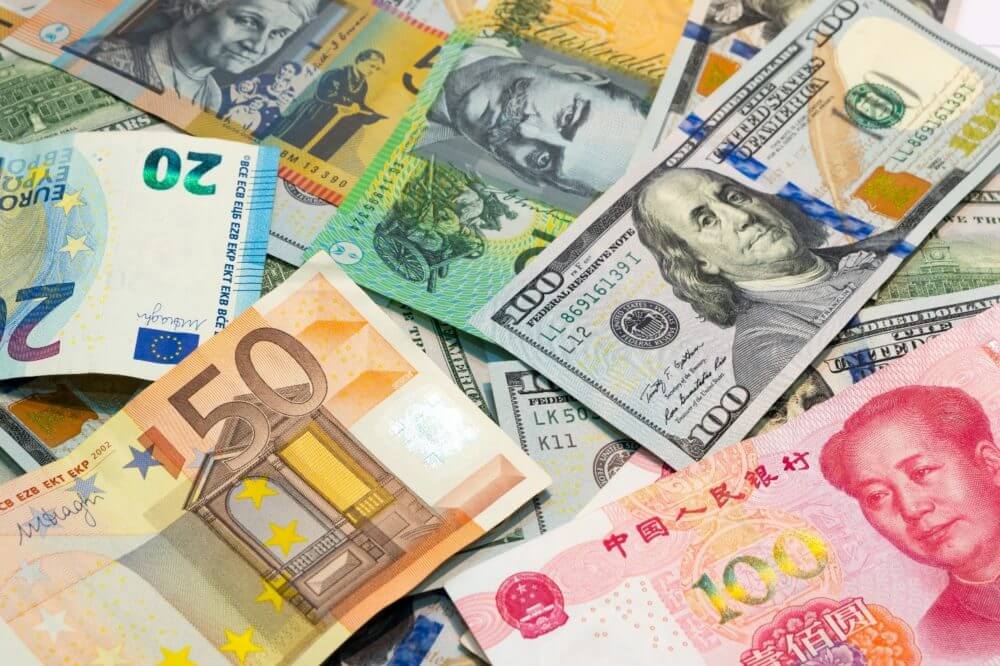Forex market volatility stood near a nine-month high on Thursday as investors weighed the risks posed by ongoing uncertainty about the threat from Omicron and a more hawkish U.S. Federal Reserve.
In Asia, the safe-haven Japanese yen declined a little after its recent strong rally. The risk-sensitive Australian dollar also tumbled down toward the almost 13-month low reached earlier this week.
The struggling British pound regained some losses after plummeting down to an 11-month low recently. However, the South African rand changed insignificantly after collapsing by 1% on Wednesday.
Meanwhile, the U.S. dollar managed to stabilize as the benchmark Treasury yields’ recovery from a more-than-two-month trough supported the currency. Mitul Kotecha, a currency strategist at TD Securities, noted that there’s a lot of uncertainty in the market at the moment. Traders are looking for clarity on Omicron, but they will only find out it in the next couple of weeks. On the other hand, we’ve got a more aggressive stance from the Fed, which is also fueling a lot of volatility.
Last month, the discovery of Omicron in South Africa caused lots of turbulence in financial markets amid signs that the new covid variant may be more contagious than previous ones, with the potential to hinder the nascent global recovery.
On Thursday, the dollar plummeted down by 0.06% to 16.01 rand. But before that, it experienced a more than 1% surge overnight as daily coronavirus cases doubled in South Africa. Omicron is currently the dominant strain in the region.
Despite a rush by countries worldwide to tighten border controls, the new covid variant has spread rapidly to places as far apart as Japan, Britain, Australia, and the United States.
How will the Fed act to avoid a new crisis?
On Wednesday, Fed Chair Jerome Powell announced on the second day of testimony to Congress that he and other policymakers would consider at their December 14-15 meeting a faster taper of stimulus. That could make earlier interest rates hikes easier.
A Deutsche Bank currency volatility index soared on Wednesday, rising toward the highest level since February. Ray Attrill, the head of FX strategy at National Australia Bank, stated that Powell’s repeat testimony tells us he is not in the least unhappy about how markets have interpreted his earlier announcement.
On Wednesday, the 10-year Treasury yield dropped to a two-month low at 1.4020% before surging to 1.4409% in Asia on Thursday. That rally in yields helped the greenback to stabilize from recent declines. On Thursday, the dollar index climbed up by 0.01% to 96.059 against six major peers. Finally, it consolidated in the middle of its last two weeks range.
The U.S. currency also jumped by 0.29% to 113.08 Japanese yen, rising from Tuesday’s low of 112.535, a level last reached on October 11.
Meanwhile, the euro remained steady at $1.1316. The British pound often considered a riskier currency, also gained 0.12% to $1.32855. Before that, it dropped to an almost one-year low of $1.31945 on Tuesday.
The Australian dollar shaved off 0.13%, dropping to $0.70985 on Thursday. It moved back toward Tuesday’s low of $0.7063, its weakest level since early November of 2020.
How did the Turkish Lira fare?
The Turkish currency was the worst-performing Emerging market’s currency on Thursday. It tumbled down by more than 1%, trading at 13.5380 against the greenback at last. Before that, the Lira had hit a record low of 13.8716 during the previous session.
President Erdogan announced that Nureddin Nebati would be the new finance minister after the resignation of Lutfi Elvan. That caused more turbulence in the market. The Turkish currency has been in free-fall since October. It declined by almost 81% this year after the central bank cut interest rates repeatedly despite the inflation soaring by nearly 20% in the country.
Central bank intervention in forex markets on Wednesday wasn’t enough to support the Lira, especially after Erdogan had reaffirmed his determination to maintain steep rate cuts.
Ulrich Leuchtmann, the Head of FX and Commodity Research at Commerzbank, noted that the only factor that can make interventions a success is a contemporaneous change in policy, but that clearly did not happen.
Meanwhile, South Africa’s rand jumped by 0.7%. It gained the most across EMEA as it continued to recover from significant losses suffered last week.











